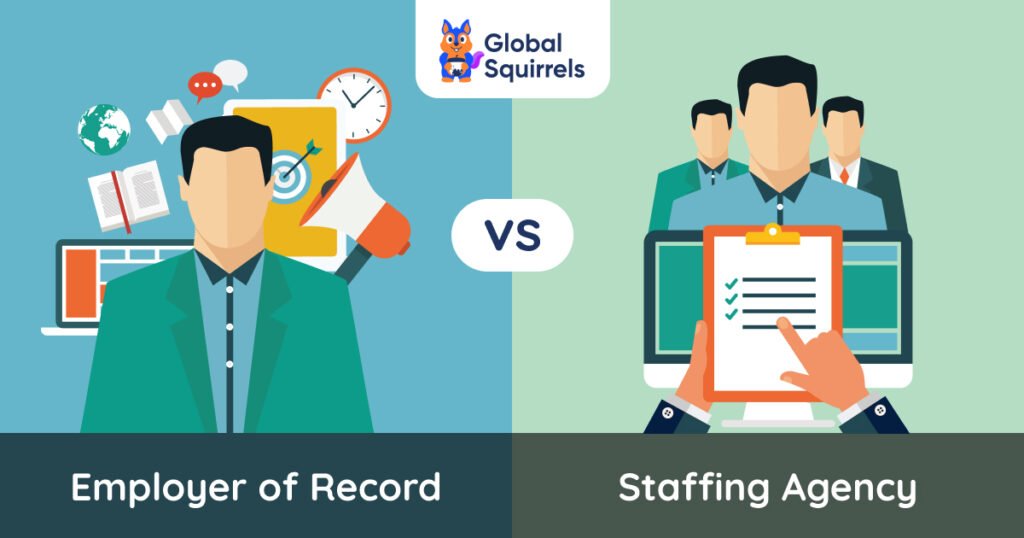Employer of Record vs Staffing Agency: Differences

In today’s competitive job market, businesses are increasingly relying on external resources to meet their staffing needs. When it comes to hiring temporary or contract workers, two popular options are an employer of record (EOR) platform and a traditional staffing agency.
While both serve the purpose of providing businesses with the required talent, they operate in distinct ways and offer unique benefits. This article aims to shed light on the key differences between an employer of record platform and a traditional staffing agency, helping businesses make an informed decision when it comes to managing their workforce.
Difference Between Employer of Record and Staffing Agency
Definition and Functionality

Administrative Responsibilities

Legal and Compliance Considerations

Also read: Difference between Hiring and Recruitment Process
Flexibility and Control
| Aspect | Employer of Record (EOR) | Staffing Agency |
|
Flexibility |
Engaging an EOR platform allows for greater flexibility and control over the workforce. | In a traditional staffing agency arrangement, the client company maintains control and supervision over the workers they hire. |
| Degree of Control | The client company retains complete autonomy in directing and managing the day-to-day activities and job duties of the workers. | However, the degree of control may be somewhat limited by the contractual agreement between the client company and the staffing agency. |
| Overall Focus | With the EOR platform shouldering the administrative burden, the client company has the freedom to focus on strategic goals and core business functions. | While the staffing agency handles administrative tasks, the client company may have less flexibility in determining the day-to-day activities and job duties of the workers. |
Conclusion
Understanding the differences between an employer of record platform and a traditional staffing agency is crucial for businesses seeking to optimize their workforce management strategies. The choice ultimately depends on specific business needs and preferences.
An EOR platform offers comprehensive administrative support, legal protection, and greater control over the workforce, while traditional staffing agencies provide access to a pool of candidates and some administrative assistance. By carefully considering these distinctions, businesses can make an informed decision that aligns with their goals and ensures a successful employment arrangement.
